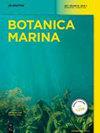Chemical ecology of plankton parasitism in algae
IF 1.4
4区 生物学
Q2 MARINE & FRESHWATER BIOLOGY
引用次数: 0
Abstract
Plankton parasites such as viruses, bacteria, fungi, and unicellular eukaryotes are associated symbionts colonizing algal groups in aquatic ecosystems. They occur within a network of microbe–microbe interactions in which they parasitize phytoplankton and seaweeds, i.e., primary producers generating organic carbon and forming the basis of marine food webs. These parasites use algae as a source of nutrients and reproduce at the expense of their host, causing infectious symptoms leading to disease and death. Plankton parasites can reduce the algal populations, and the infection of one specific species may, in turn, favor the development of another, influencing the seasonal succession of algal blooms in oceans, seas, and lakes. Many parasites have free-living stages that zooplankton graze upon, representing a significant trophic link in food webs. The biology and life cycle of plankton parasites are well investigated in marine and freshwater algal hosts. Still, the chemical signaling mediating these microbial interactions and the effect of co-occurring symbionts remain underexplored. This review focuses on the diversity of plankton parasites infecting algae, with a particular emphasis on unicellular eukaryotes. The ecological role of plankton parasites, the mechanisms regulating cellular infection and host resistance, and the interplay of alga-parasite interactions with coexisting microorganisms are discussed.浮游生物寄生于藻类的化学生态学
浮游生物寄生虫(如病毒、细菌、真菌和单细胞真核生物)是水生生态系统中藻类群体的相关共生体。它们寄生在浮游植物和海藻(即产生有机碳并构成海洋食物网基础的初级生产者)的微生物-微生物相互作用网络中。这些寄生虫利用藻类作为营养源,以牺牲宿主为代价进行繁殖,造成感染症状,导致疾病和死亡。浮游生物寄生虫会减少藻类数量,感染一种特定物种可能反过来有利于另一种物种的发展,从而影响海洋和湖泊中藻类繁殖的季节性更替。许多寄生虫都有浮游动物捕食的自由生活阶段,是食物网中重要的营养环节。浮游生物寄生虫在海洋和淡水藻类宿主中的生物学和生命周期已得到深入研究。然而,对介导这些微生物相互作用的化学信号以及共生共栖生物的影响仍未进行充分探索。这篇综述主要介绍了感染藻类的浮游生物寄生虫的多样性,尤其侧重于单细胞真核生物。文章讨论了浮游生物寄生虫的生态作用、细胞感染和宿主抵抗力的调节机制,以及藻类寄生虫与共生微生物之间的相互作用。
本文章由计算机程序翻译,如有差异,请以英文原文为准。
求助全文
约1分钟内获得全文
求助全文
来源期刊

Botanica Marina
生物-海洋与淡水生物学
CiteScore
4.10
自引率
4.50%
发文量
43
期刊介绍:
Botanica Marina publishes high-quality contributions from all of the disciplines of marine botany at all levels of biological organisation from subcellular to ecosystem: chemistry and applications, genomics, physiology and ecology, phylogeny and biogeography. Research involving global or interdisciplinary interest is especially welcome. Applied science papers are appreciated, particularly when they illustrate the application of emerging conceptual issues or promote developing technologies. The journal invites state-of-the art reviews dealing with recent developments in marine botany.
 求助内容:
求助内容: 应助结果提醒方式:
应助结果提醒方式:


